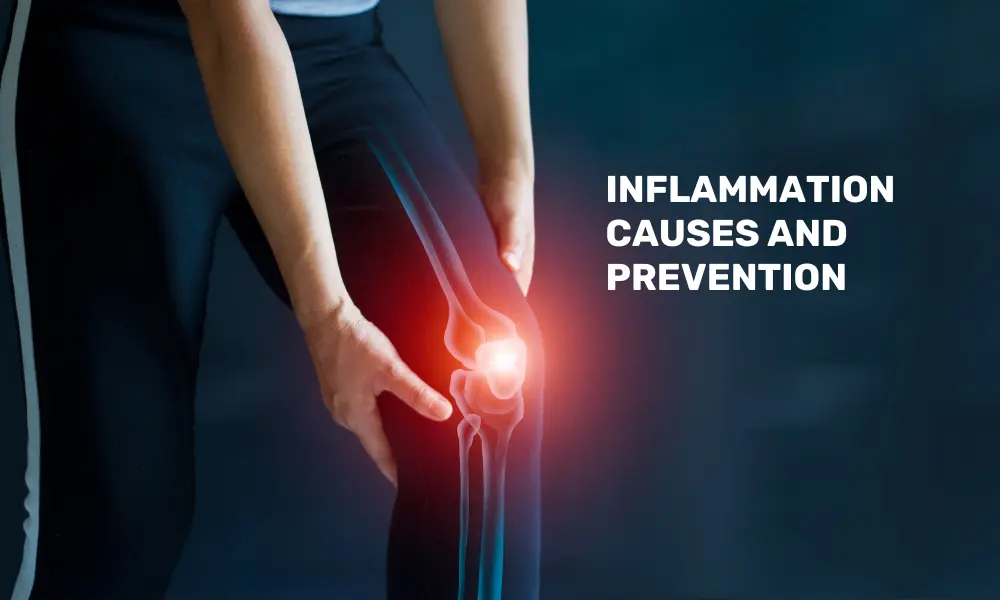Inflammation is our body’s response to an illness, injury, or something that doesn’t belong in our body. Inflammation is a normal and essential process that allows our body to heal. Inflammation can be acute, lasting a few days, or chronic, lasting up to many months or years.
What is inflammation?
When your body tries to heal itself, it will fight against harmful substances, wounds, infections, and poisons. This process is known as inflammation. Antibodies and proteins are released during this reaction, and the wounded area receives more blood flow.
When this reaction persists and keeps your body on high alert, chronic inflammation results, and chronic inflammation may eventually cause harm to your organs and tissues. According to studies, persistent inflammation may also contribute to a number of illnesses, including stroke and cancer.
Causes for inflammation in the body
Smoking: Many chemicals found in tobacco smoke can irritate and cause inflammation in the body. Smoking can cause tissue damage and raise inflammatory cytokine production, which can prolong a chronic inflammatory condition.
Old age: Our immune systems alter with age, which may cause an increased inflammatory response. Prolonged bouts of inflammation are caused by a decline in the body’s ability to regulate inflammation.
Diet loaded with added sugar and bad fats: Inflammation can be brought on by eating foods heavy in added sugars and harmful fats, such as trans and saturated fats. These food ingredients have the potential to raise the body’s inflammatory marker levels and speed the onset of chronic illnesses.
Being overweight: Cytokines are chemicals that cause inflammation when they are produced by excess body fat, especially visceral fat around the abdomen. These cytokines have the potential to cause low-grade inflammation to remain persistent throughout the body.
Poor sleep: Inadequate or poor-quality sleep can have a detrimental effect on the body’s inflammatory response. Pro- and anti-inflammatory molecules are out of balance when sleep-deprived, which increases inflammation and raises the risk of chronic illnesses.
Stress: Cortisol is released as a result of ongoing stress, which can impair the immune system and cause inflammation. Long-term stress can cause the body to remain hypervigilant, which can lead to chronic inflammation.
Low sex hormones: Estrogen and testosterone, two sex hormones, have anti-inflammatory qualities. The aging process, illnesses, or therapies that cause low levels of these hormones can impair the body’s capacity to regulate inflammation.
Treating Inflammation
An anti-inflammatory diet is a must for people with inflammation. Such a diet includes foods rich in nutrients that can help reduce inflammation in the body. Key components of this diet include:
-
Tomatoes: Rich in lycopene, an antioxidant that helps fight inflammation.
-
High-Fiber Foods: Promote gut health and reduce inflammation; includes vegetables, fruits, and whole grains.
-
Fruit: Blueberries and oranges are packed with vitamins, antioxidants, and fiber, all of which help combat inflammation.
-
Olive Oil: Contains healthy fats and antioxidants that have anti-inflammatory properties.
-
Nuts: Walnuts and almonds provide healthy fats and antioxidants.
Inflammation may slow down our body’s response to illness and infection, making us vulnerable to falling sick. Therefore, one must incorporate an anti-inflammatory diet to improve overall health. For a customized diet – CLICK HERE.





